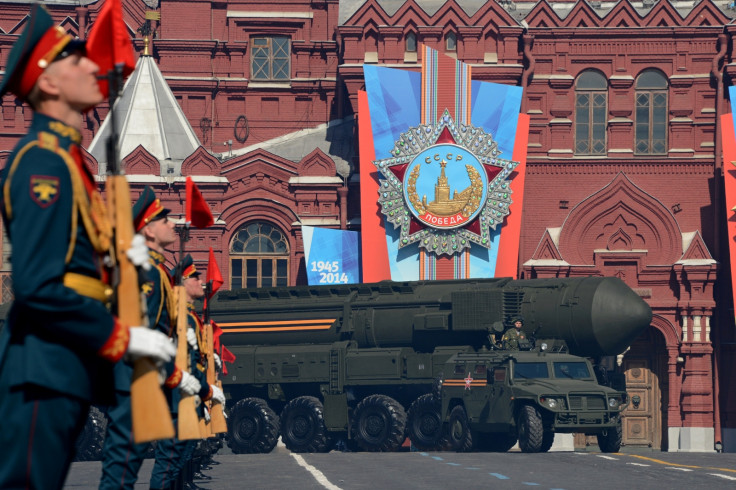Former MI6 chief Sir John Sawers warns of 'second Cuban missile crisis' amid growing Russia threat

Former MI6 chief Sir John Sawers has warned of a second Cuban missile crisis developing, with tensions between east and west escalating.
He said that the one respect in which Russia and the US were equals was in their nuclear capacity, and said that increased dialogue was required.
Russia keep on reminding us that they have nuclear weapons, he told the BBC.
"Now we don't want to have a repeat of the Cuban missile crisis in 1962 where we got to the brink of nuclear war.
"We need to be able to address this through increased dialogue."
Sawers, who recently retired after five years as chief of the Secret Intelligence Service, said that Russia posed the greatest threat to countries on its periphery, and that more defence spending was needed to deal with the threat.
"We shouldn't kid ourselves that Russia is on a path to democracy because it isn't," Sir John said.
"One of the aspects of the modern world is that we live in a much more dangerous world these days.
"The stability that we had during the Cold War, or the predominance of the West that we had in the decade or two after the Cold War - that is now changing.
"It's a much sort of flatter world, a much more multipolar world and there are real dangers associated with that."
Russian forces have been locked in combat with Ukrainian forces for more than a year now, and Sawers said that Russian belligerence was the result of it feeling "exposed".
"Europe and Russia are not converging with one another so we're going to have to find a new way to co-exist with Russia," he said.
"This crisis at the moment - it's focused on Ukraine but Ukraine is a symptom. It's not the real problem.
"The real problem is how we live with a Russia which feels very exposed. Putin's actions are ones of a leader who believes his own security is at stake.
"And here we've got nuclear bombers approaching the Cornish coast."
With fears emerging that Russia could attempt to annex Baltic states, Sawers said that UK defence spending would have to rise to cope with the threat.
"We've got to have the capability to deal with things like the hybrid warfare that we've seen Russia deploy, first in Crimea and then in the Donbass region; we've got to have the ability to deal with cyberwarfare.
"What's really important is that we're able to fulfil all of our defence commitments and I think that that's going to require a reversal in the trend in defence spending.
"We're going to have to spend more on our defence and our security because the threats are greater."
Sawers also discussed the threat from Islamic radicalism, in the week that the masked militant Jihadi John, who beheaded a series of western hostages in Islamic State propaganda videos was revealed to be British citizen Mohammed Emwazi, from west London.
He said that there were a number of factors which explained how people become radicalised.
The first is that Muslims "are less well integrated" into UK society "and there are a number of social and economic factors that are related to that".
Secondly, he said, the Islamic religion "as a whole is not well geared to reviving and modernising itself so that it meets the values and the norms of a 21st Century society".
"So there's a big political challenge which can only really be taken up by leaders in the Islamic world... it can't be imposed by the West."
© Copyright IBTimes 2025. All rights reserved.






















